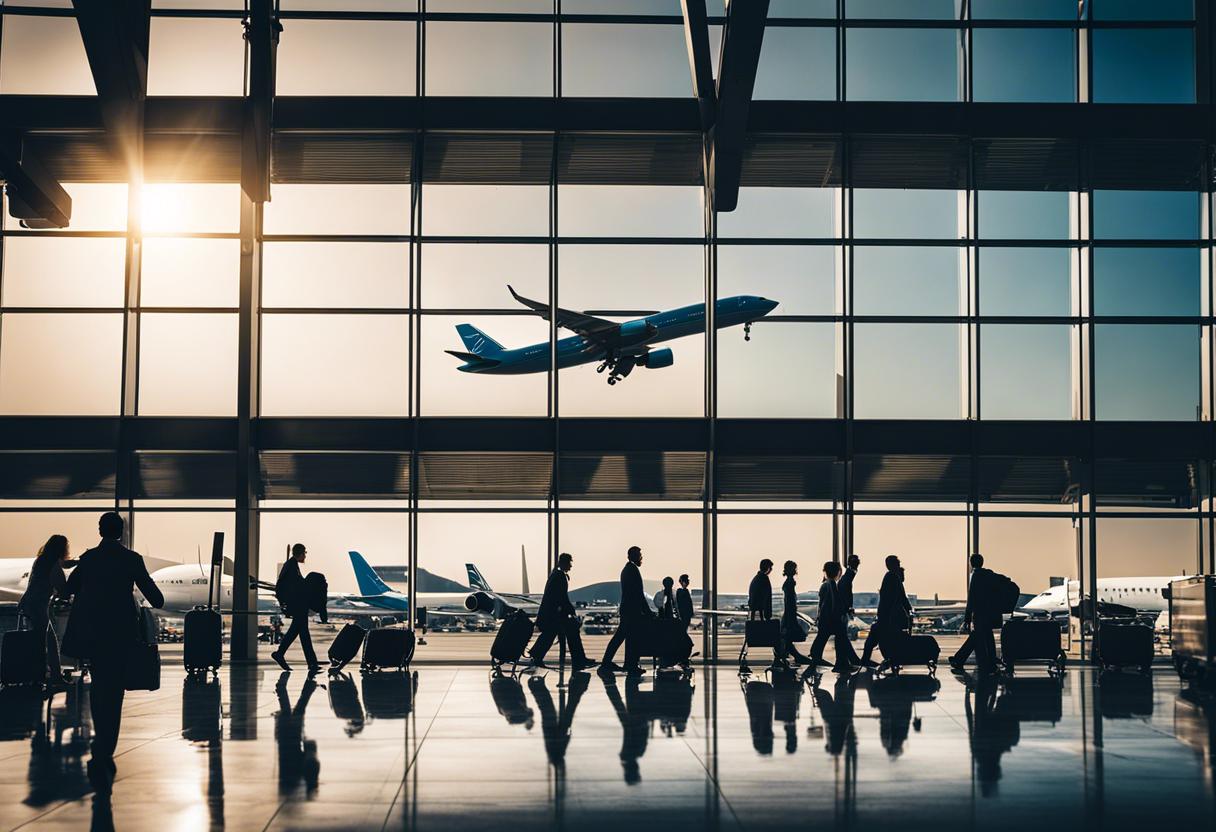In a report by the Irish aircraft leasing company SMBC Capital Aviation, it is projected that air travel will see a notable rise in 2024, following air traffic surpassing pre-pandemic levels in 2023. According to the Dublin-based company, one of the global titans in this sector, high interest rates and production holdups could potentially augment the leasing rates charged by SMBC and their competitors to airlines.
Shane Matthews, Darren Naughton and David Griffin, market strategy analysts of the company, authored the report named “Push and Pull Factors on Aircraft Lease Rates”. They highlighted that by the close of 2023, airlines had finally managed to surpass the 2019 capacity levels, with the first quarter of 2024 set to see further growth.
The recovery level of air travel in the wake of Covid-19 was remarkable in 2022 according to SMBC’s statistics, with Europe witnessing a doubling of air traffic from the previous year. Air traffic in the Middle East grew by over 140%, while in Africa it was at 80%. However, it is important to note, the report points out, that the recovery is not uniform across regions. For instance, while transatlantic travel has fully recovered, transpacific travel is 16% less than 2019, and travel between Europe and Asia is lagging by 8%. Longer flights are recovering at a slower pace.
It’s worth noting that in China, which was in lockdown for a longer duration compared to many other countries, domestic flights are currently 17% above 2019 levels. However, international flights were down by 36% in 2023’s final quarter.
The company has observed that there has been a slower return to the skies by business travellers, instead, they have noticed that wealthier holiday travellers have taken up space in premium cabins on some flights. This trend, according to Air France-KLM, has balanced out the decrease in corporate travel.
The report echoed caution against a slow return for business travel and decline in demand for premium spaces from holidaymakers, as these could impact airline earnings in the long run.
As per the data from the International Air Transport Association, airlines globally made profits of $23 billion last year and the Association forecasts an increase of profits to $26 billion for airlines, approximately $5.40 per passenger, by 2024.
The recovery from the losses amounting to around $140 billion incurred by airlines in 2020 due to travel restrictions related to Covid-19 will take a considerable amount of time, according to a report from SMBC. Most airlines, rather than purchase planes, opt to lease them from specialised aircraft leasing firms, many of which are headquartered in the Republic, a known hub for aviation finance.
SMBC maintain that high interest rates normally result in an increase in the lease rents paid by airlines to lessors. Even in situations where the rent is fixed – a fairly standard circumstance – the agreement allows for potential rent adjustments in response to changes in interest rates prior to the delivery of the aircraft.
On the other hand, less prevalent floating rents vary according to the interest rates throughout the term of the lease. Additionally, when negotiating lease rents with airlines, lessors often reflect the increased expense of borrowing money to purchase planes.
Rent will also likely increase due to manufacturing delays which have occured during a period of renewed growth in the airline industry, as indicated by SMBC. A significant example of this is Boeing’s re-evaluation of its plans to enhance its production of the 737 Max aircraft to 45 a month following the mid-air door loss incident involving Alaska Airlines in January. This represented a rise from the 38 aircraft produced monthly in the previous year. SMBC highlights the fact that a majority of these Max jets are set to be delivered to “stronger” airlines, such as Irish carrier Ryanair, and United and Southwest in the United States, none of which utilise lessors. This is expected to limit the availability of this model within its industry.
Concurrently, Airbus hopes to ramp up production of its A320neo model to 65 monthly by year-end, but this goal is hindered by delays as the engines fitted on these aeroplanes are under review for potential replacements and repairs.

